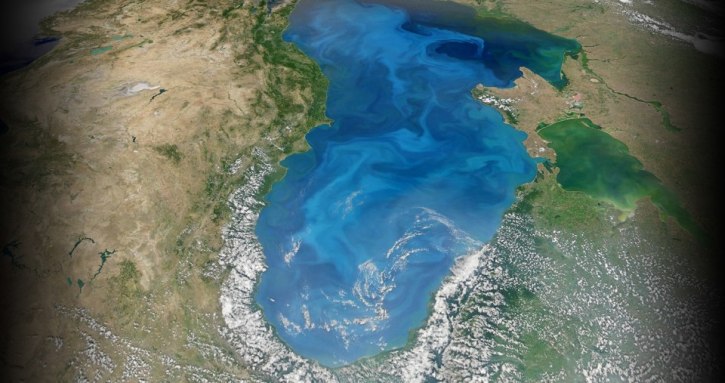The Beginnings of a Black Sea Security Community? By Carol Weaver

Satellite image of the Black Sea and the Caucasus
Carol Weaver | Special to Abkhaz World
In my new book ‘The Politics of the Black Sea Region: EU neighbourhood, conflict zone or future security community?’ (Ashgate Publishing 2013) I write about how the region could become a security community. A simple definition of this is that it is a community of sovereign entities, within a particular region, that do not expect war with each other. Deutsch and his co-authors, in 1957, described a security community as a group of people who believe that common social problems must and can be resolved by the process of peaceful change using appropriate institutions. The people within the security community develop a sense of trust and common interest. However, in order for such a community to arise, a bottom-up approach is required as well as top-down institutionalism (Buzan 1991). This bottom-up approach is attempted through people-to-people contacts such as trade, sport and civil society meetings. I have added that in order for a security community to arise and endure there must be regional ‘balanced multipolarity’.
A group of young people in the south of the Black Sea region, in particular those from Azerbaijan, Armenia, Turkey and Georgia have recently formed a network of peace builders with a slogan of ‘people not borders’ which admirably demonstrates the people-to people approach. Assisted by various branches of the European Movement and others, these young people met recently in Batumi for training in confidence building which I facilitated along with an academic colleague. The young people came together on the Mandela principle of how working with the enemy makes him your partner and they will act as ‘multipliers’ in the region. The participants included several IDPs / refugees originally from Nagorno-Karabakh and Abkhazia twenty years ago when they were small children. Any initial hostility towards ‘the other side’ evaporated on listening to other people’s stories and realising their shared goals for the region – mainly open borders, trade and freedom of movement. There was some sadness that nobody who currently lives in Abkhazia was there and they hoped that they could be included at a future venue, possibly in Istanbul.
Very often the people in regions of conflict wait for politicians or international institutions ‘to do something’. And in many post-Soviet nations there is still an attitude that initiatives should be top-down rather than bottom-to-top. There are two main problems with this. Firstly if something is done then will the people be ready to live together again? (And the international community might be more willing to help if they could see that people on both sides of a border could co-exist.) Secondly if nothing is done then will the people feel powerless and condemned to wait?
People-to-people contacts can help with both of these problems firstly by preparing the people to make friends as far as possible in advance of open borders, and secondly to help them realise that they are not powerless and can actually begin to work towards peace without waiting for the authorities to act. Maybe a different form of what Havel called ‘the power of the powerless’.
Carol Weaver
Department of Politics and International Relations, University of Leicester, UK